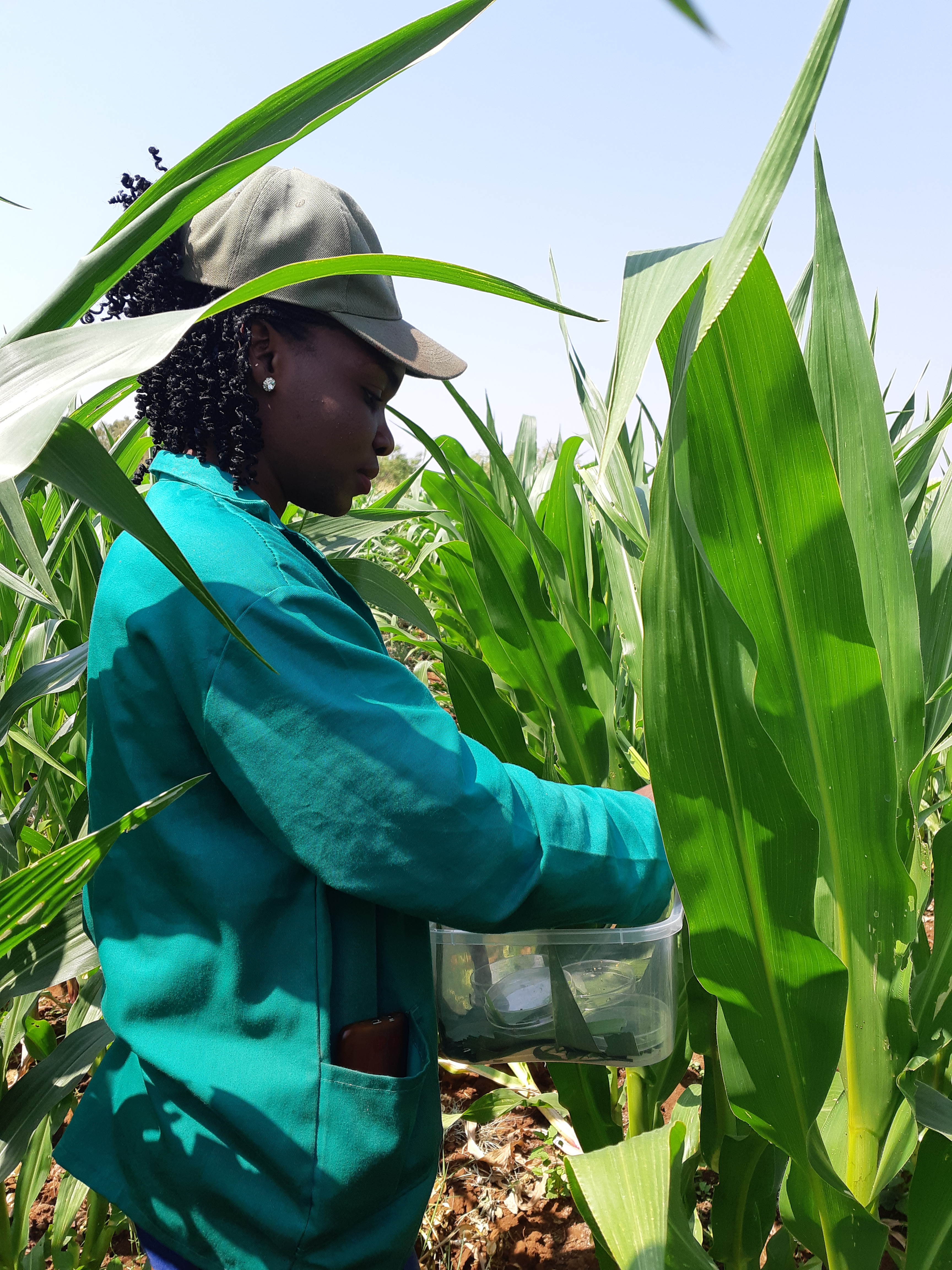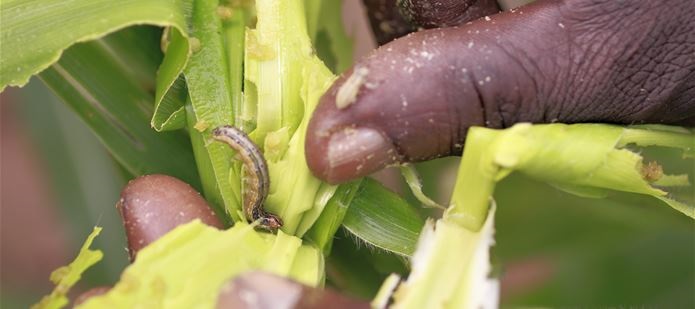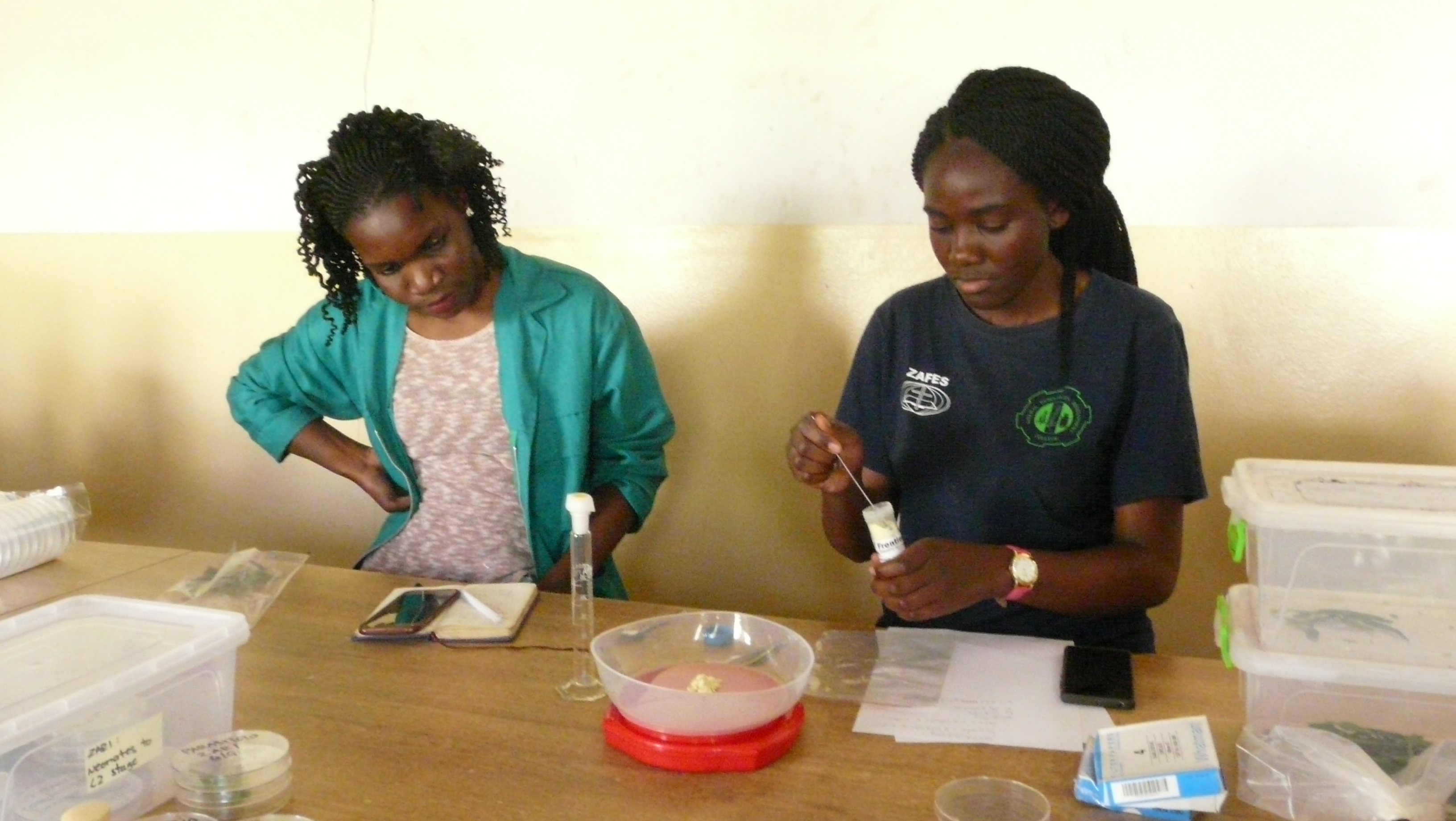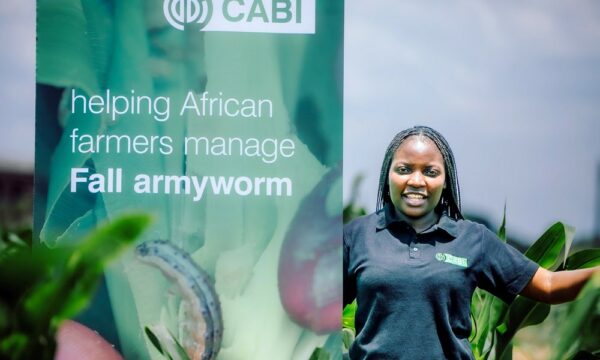
Tibonge Mfune sampling fall armyworm larvae to survey for natural enemies in Zambia.
Youth unemployment is a significant economic and social burden for Zambia. So too is the impact of invasive species on agricultural production and the natural environment.
Are these mutually exclusive challenges, or can youth unemployment and tackling agricultural challenges, such as invasive species, be effectively positioned together to deliver jobs, food security and sustainable agriculture?
In 2017, estimates put unemployment amongst 18-24 year old’s in Zambia at up to 15.4 per cent, double the total labor force unemployment figure.
The International Labour Organisation links Zambia’s youth unemployment to low education and skills levels, skills mismatch, low levels of entrepreneurship coupled with limited access to appropriate finance, technology and markets, low absorptive capacity of the labour market for new entrants and the concentration of growth in highly capital-intensive and urban based sectors.
To achieve inclusive growth
Having young people out of work puts a high cost on the Zambian economy but so to do the various environmental threats facing agriculture.
Zambia is heavily dependent on its agricultural sector, contributing 20 per cent to annual GDP. According to the African Development Bank’s Economic Outlook, Zambia’s GDP growth fell slightly between 2017 and 2018. A number of factors contributed to this but a shortage of rainfall leading to a 35 per cent reduction in agricultural output was thought to be the largest factor.
Ensuring Zambian agriculture is resilient to environmental stresses is important for economic stability and employment given almost 50 per cent of the population works in the sector.
Alongside climatic stresses, invasive crop pests and diseases pose another environmental threat to the millions engaged in agriculture and those who eat what they produce. Fall armyworm, originating from the Americas, is one of the most damaging crop pests currently affecting Zambian maize farmers. CABI estimates the lost value of annual maize crop in the country to be US$159m.

Fall armyworm larva on maize
Tibonge Mfune and Monde Musesha, 27 and 25 years old respectively, are both working at the Zambia Agricultural Research Institute (ZARI) and collaborating with CABI on the Action on Invasives programme to find solutions to crop pests such as fall armyworm and Tuta absoluta using natural enemies encountered naturally in Zambia. They are both passionate about the work they do and enjoy having the opportunity to apply their education to pursue future career aspirations and provide an important service for their country.
“Agriculture is the basis of everything. It feeds the world. I think if more people go into it, it will reduce poverty in our country. Agriculture is practical and requires energetic people which is where the youth come in”, said Tibonge.
While overcoming perceptions of agriculture as a professionally and economically unfulfilling activity is needed, encouraging young people into the scientific research side is also important.

Tibonge (left) and Monde (right) preparing artificial diet to rear fall armyworm at the ZARI entomology laboratory.
Whilst studying at the University of Zambia, Tibonge expressed the reluctance of her fellow university students to work in agricultural science.
“While students are at university they often choose to go into medical entomology to tackle well known human diseases like Malaria. They don’t often think about agriculture and doing that as a career.”
Larger amounts of government and donor funding for human disease prevention along with recent successes in Malaria control provide strong incentives for young entomologists to pursue careers in medicine instead of agriculture.
While addressing human health issues is necessary for achieving the UN Sustainable Development Goals (SDGs), Tibonge believes it should not come at the expense of progress in the agricultural sciences.
Additionally Monde argues, “Few students choose to study agriculture, in part, because the quality of agricultural training is mixed, taught materials need to be linked to advances in technology, facilitate innovation and have relevance to a diverse and evolving agricultural sector.”
With pressures of population growth, youth unemployment and increased susceptibility to invasive species, developing agriculture – both on the farm and in the lab – could provide part of the solution to all of these challenges.
But more support is required.
Although recent increases in spending on agriculture by the Zambian government has been reaping richer returns for the economy, improvements in farm efficiency and productivity are needed. Channelling funding towards creating an innovation-led generation of farmers able to predict, prevent and control invasive species, like fall armyworm, goes beyond just agricultural progress to encompass a number of SDGs related to economic empowerment and environmental protection.
By tackling one of agriculture’s biggest challenges Tibonge and Monde are championing the role of young scientists and entomologists in Zambia’s job market. If others follow in their footsteps a younger generation could be the catalysts to revitalise the sector, tackle food insecurity and improve standards of living for their country and themselves.
More information:
Tibonge and Monde have been trained by Gilson Chipabika, Entomologist at ZARI who is also heading up CABI’s Action on Invasives programme in Zambia. Also assisted by Léna Durocher-Granger, Research and Programme Assistant, Plantwise Knowledge Bank and Action on Invasives.
1 Comment
Leave a Reply
Related News & Blogs
CABI hosts panel to discuss youth engagement for biological control of fall armyworm in Zambia
CABI in partnership with the University of Zambia and the Zambia Agricultural Research Institute (ZARI) have hosted a panel to discuss engaging youth for the sustainable biological control of the devastating fall armyworm pest in Zambia. In recent year…
12 February 2025





Reblogged this on The Invasives Blog.